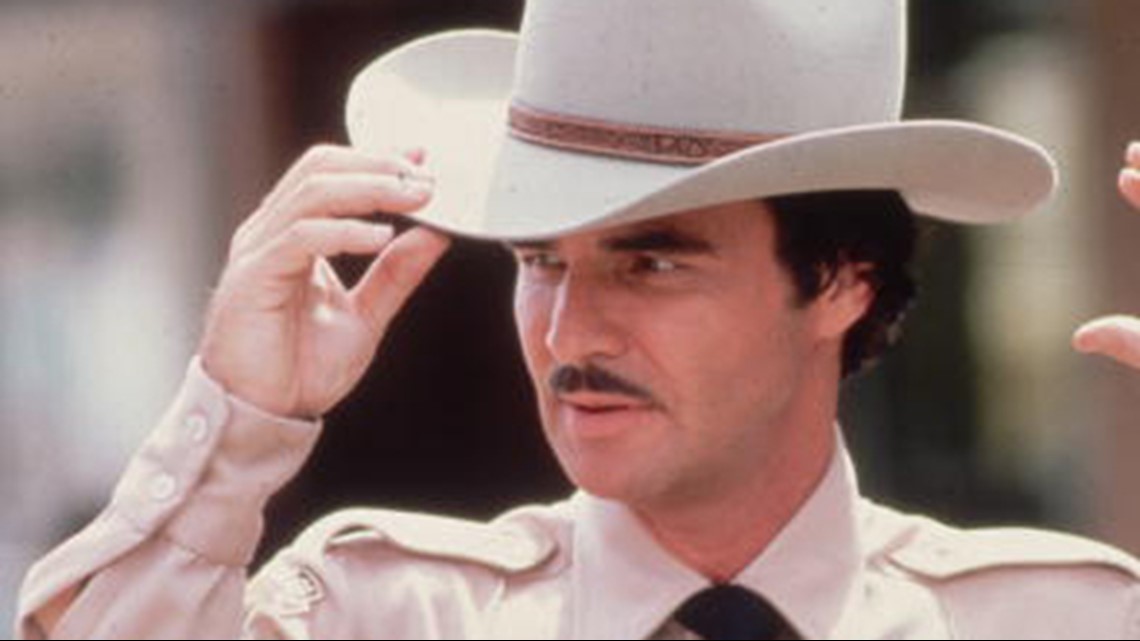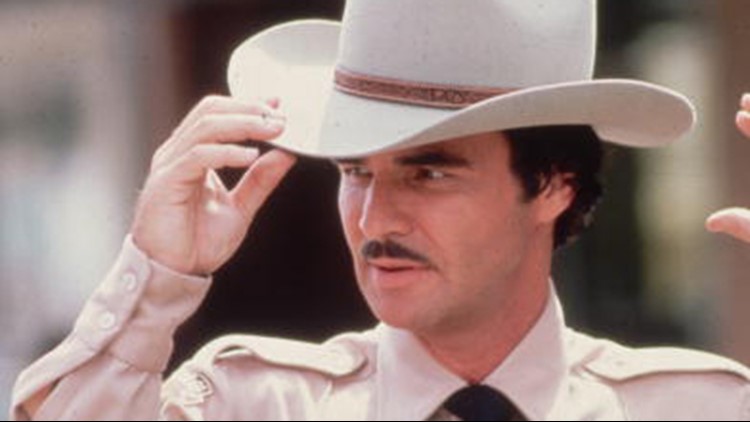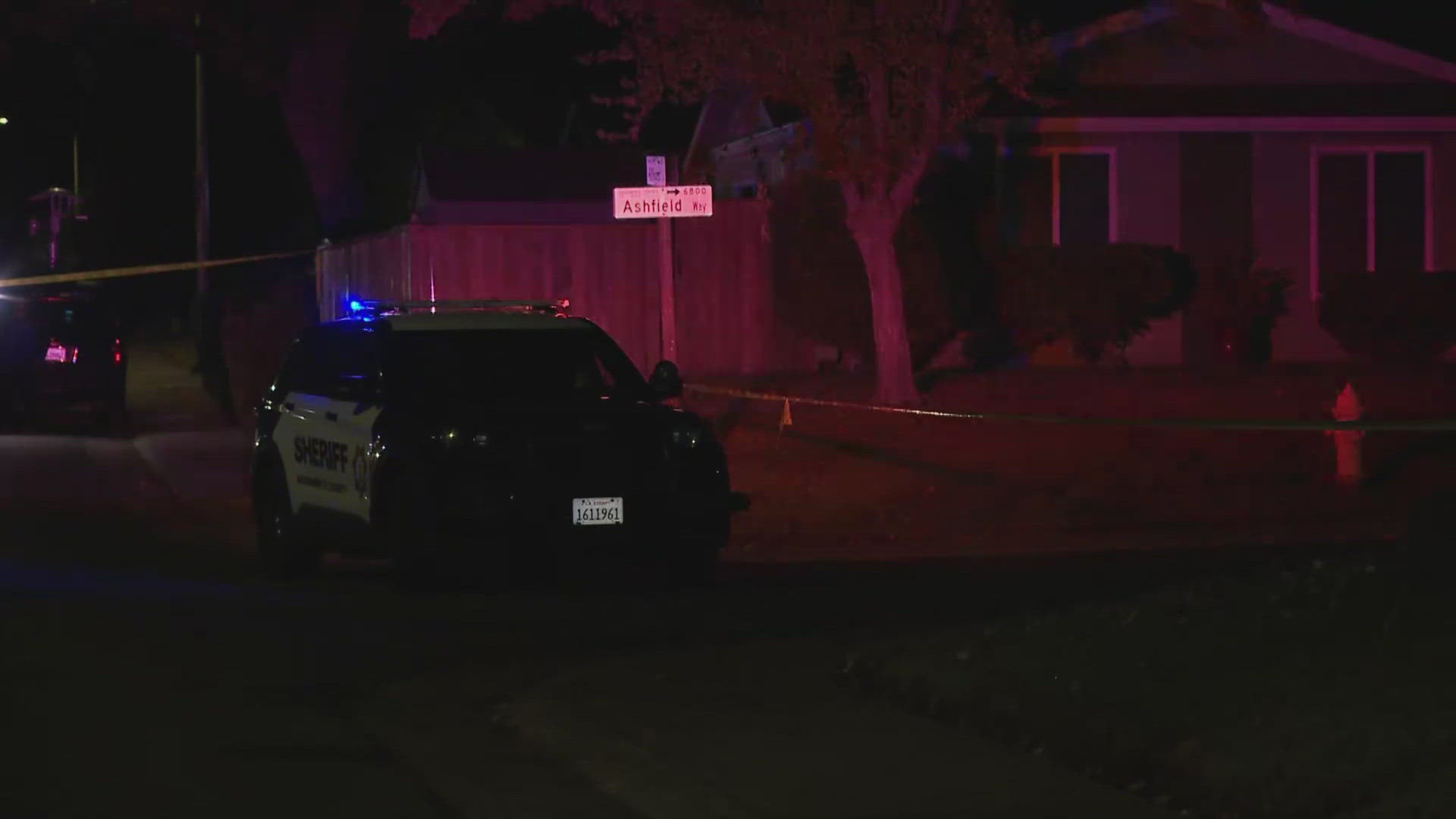Burt Reynolds, the popular star of films such as "Deliverance," "The Longest Yard" and "Smokey and the Bandit," has died at 82.
His agent, Todd Eisner, confirmed the actor's death to The Associated Press. Reynolds died Thursday morning at Jupiter Medical Center in Florida, his manager, Erik Kritzer, told The Hollywood Reporter.
USA TODAY has reached out to Reynolds' representatives for details.
With his devil-may-care attitude, a permanent twinkle in his eyes and his trademark mustache, good-ol'-boy Reynolds was the bankable box-office star of the 1970s and early '80s – accumulating a string of box-office hits and unforgettable appearances on "The Tonight Show" couch with his "dear friend," host Johnny Carson.
He earned his first and only Oscar nomination in 1998 for Paul Thomas Anderson's "Boogie Nights." He flaunted his sex appeal in 1972, posing rakishly on a bearskin rug as the first male nude (well, nearly) centerfold in Cosmopolitan magazine – a choice he later describes as "one of the biggest mistakes I've ever made."
Reynolds was known for his personal dramas off the screen: his high-profile lost love with his "Smokey" co-star Sally Field and a messy divorce from actress Loni Anderson, a string of box-office clunkers that tanked his career, and well-chronicled financial problems.


Reynolds re-emerged last year for personal project "The Last Movie Star," which looked into the life of a faded star filled with regret and longing, an exaggerated version of the actor content to living a mostly quiet life in Jupiter, Florida.
"I've been very, very lucky through ups and downs. When you crash and burn, you have to pick yourself up and go on and hope to make up for it," Reynolds told USA TODAY in an interview in March. "Along the way, I’ve met some wonderful people. And you always run into some jerks. But that would be the same if you were working for the Ford Motor Company.
"It’s a tough business. Very tough. But I always tried to leave a good impression wherever we shot, and I didn’t leave any buildings burning or anything," he added with a smile. "And I've had a good time through it all."
Reynolds was born Feb. 11, 1936, in Lansing, Michigan, and moved to Riviera, Florida, where his war-hero father Milo was the chief of police. The young Reynolds often clashed with his tough dad, who arrested him as a teenager for fighting and locked him up.
"For two more days, I sat in there. And for two more days, he threw every drunk he could on top of me," Reynolds recalled. "We never really made up. But I think he was proud of me at the end."
Reynolds excelled in football and was a star halfback at Florida State University before an injury derailed his career. He moved into movie stunts and eventually small acting parts in TV and movies.
In 1972, he made his breakthrough performance in the Oscar-nominated "Deliverance," the film he remained the most proud of throughout his career.
"It didn’t make as much money as a lot of the others," Reynolds said. "But it was a very difficult picture to make it. And it was done with a crazy leading man."
Leading roles in box office hits followed, including "Smokey" and "Semi-Tough" in 1977, and continued through banner years such as 1981 when "The Cannonball Run," "Paternity" and "Sharky's Machine" all hit the big screen.
His most personal role was in the 1979 comedy "Starting Over," playing the divorced Phil Potter opposite Jill Clayburgh and Candice Bergen. That "was the closest to me, in terms of, I see myself in that character and it was a classic film," Reynolds told USA TODAY. "It had some beautiful women and all the good things."
Reynolds kicked himself for some of the roles he turned down, such as Jack Nicholson's characters in "One Flew Over the Cuckoo's Nest" and "Terms of Endearment," and Richard Gere's part in "Pretty Woman."
But he never lost the twinkle in his eyes.
"I would do some things different. But you can’t," Reynolds said with a laugh. "You can only lie and say I wouldn’t do things differently."


